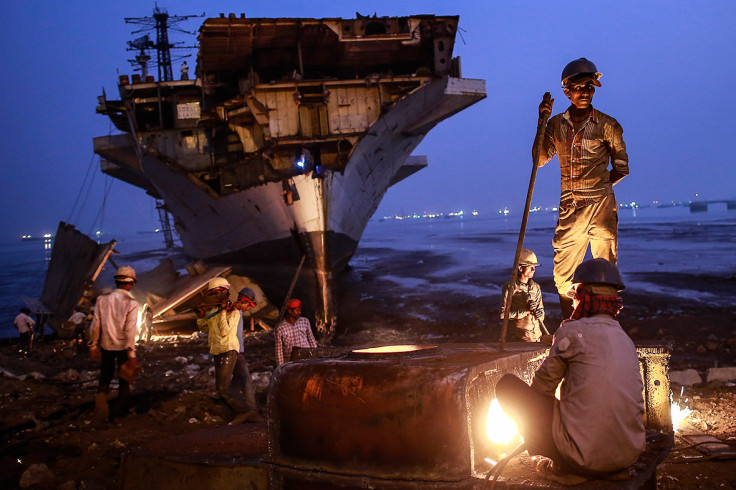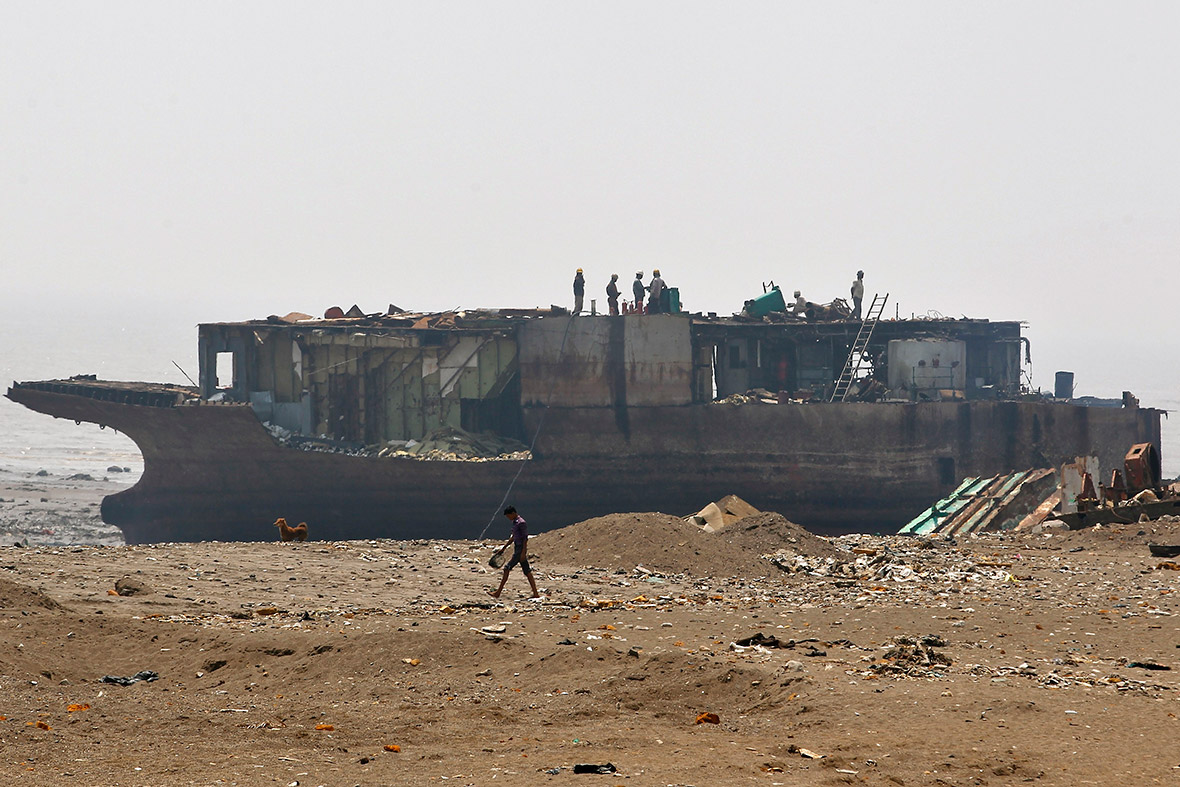India: New EU rules ban unsafe dismantling of ships on beaches in south Asia [Photo report]
Where do old ships go when they die? In recent years, the answer would probably be: a beach in south Asia. Of 1,026 ocean-going ships recycled in 2014, 641 were taken apart on beaches in India, Bangladesh and Pakistan, according to figures from the NGO Shipbreaking Platform.

Tankers, cruise liners and other old vessels are rammed onto beaches and stripped down by hundreds of unskilled workers using simple tools such as blowtorches, with little or no protective gear. Chemicals leak into the ocean when the tide comes in.
There is also a human cost: the Tata Institute of Social Sciences in Mumbai estimates that some 470 workers have died in the past 20 years in accidents in Alang-Sosiya, the world's largest stretch of ship-breaking beaches, in Gujarat. Some 35,000 mostly migrant and unskilled workers operate there.


However, new EU rules will require that EU-registered ships be recycled only at sustainable facilities, and a list of these is expected to be published next year. It is likely to include yards in China, Turkey, North America and the European Union but not South Asia.
The incentive to part with an old vessel at a South Asian facility is huge. Rules on disposing of asbestos, for example, are generally more lax, meaning the profits for breaking up a ship are higher. Depending on raw-material prices, ship owners can make up to $500 (£338) per tonne of steel from an Indian yard, compared with $300 in China and just $150 in Europe.




The European Commission is looking at ways to reward ship owners for recycling at approved facilities, although details are still to be decided.
Indian shipyard owners see the new rules as a ploy to fill empty yards in Europe. Fewer than 4% of all retired ocean-going ships passed through European facilities in 2014.
Haiderali G Meghani, director of International Steel Corporation, a large ship recycling firm based in Alang, told Reuters that concerns about poor safety and environmental standards in India were misplaced. "We are almost near European standards," he said.
The new EU rules have one big loophole: owners can change a ship's flag or sell it on to a third party outside Europe, who can then scrap it at a non-approved facility. But ship owners are likely to face harsh criticism if they resort to such practices under the new regime.
European shipping groups such as Denmark's Maersk and Germany's Hapag-Lloyd have already adopted policies to recycle only at facilities that meet international environmental standards.
At the Galloo ship recycling yard in Ghent, Belgium - the largest in Europe - the volume of ships recycled has more than quadrupled over the past 10 years to about 35,000 tonnes of steel per year. It employs only about 30 staff, with most of the heavy work done by machines.





"Large companies have started to come here," Peter Wyntin, head of recycling, told Reuters. "They just can't afford the bad press any more of dismantling ships on some beach."
© Copyright IBTimes 2025. All rights reserved.






















